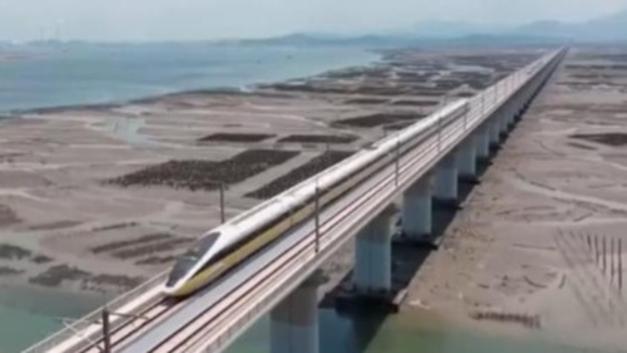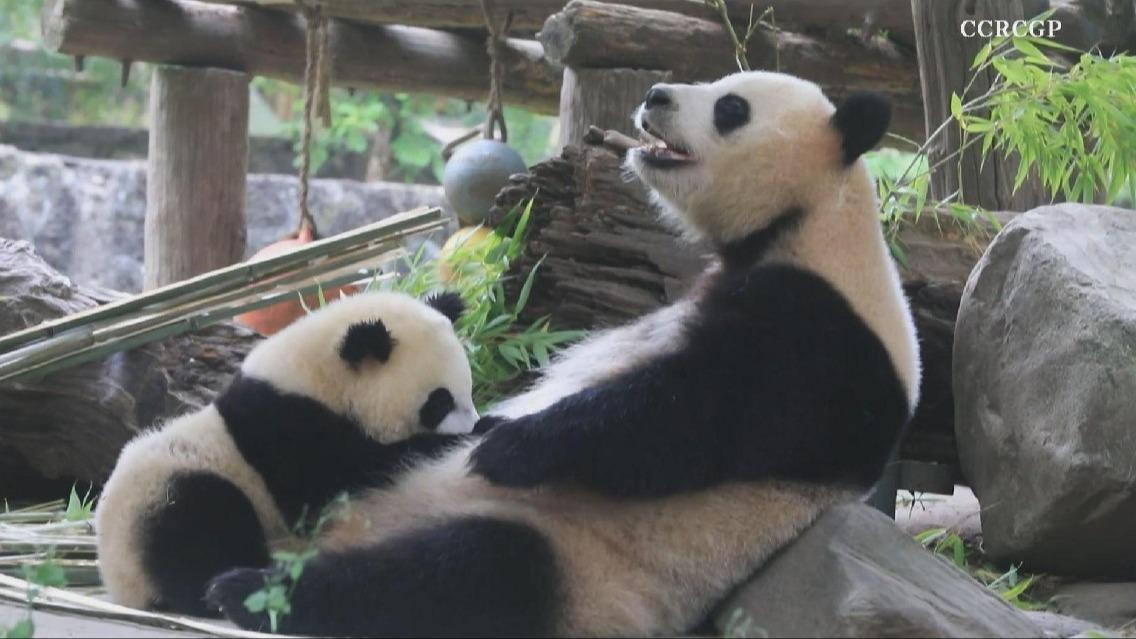How Asia can lead an inclusive, sustainable recovery in post-pandemic era
-- Leaders and observers worldwide have said that with openness, solidarity and a commitment to a shared future, the world will ride out the COVID-19 pandemic and address fundamental challenges of the time to make the planet safer and growth more sustainable.
-- A World Bank report suggests that by 2030, the Belt and Road projects could help lift 7.6 million people out of extreme poverty and 32 million people out of moderate poverty across the world.
-- Xi called on all nations to follow the principles of extensive consultation, joint contribution and shared benefits, uphold true multilateralism, and make the global governance system more fair and equitable.
BOAO, Hainan, April 21 (Xinhua) -- The global spotlight is once again on Boao, with political and business heavyweights around the world discussing Asia's power in improving global governance at an annual gathering in the Chinese coastal town.
At Tuesday's opening ceremony of the Boao Forum for Asia (BFA) Annual Conference 2021, Chinese President Xi Jinping delivered a keynote speech, sharing inspiring views on how the global community can pull together through adversity.
Similarly, leaders and observers worldwide have said that with openness, solidarity and a commitment to a shared future, the world will ride out the COVID-19 pandemic and address fundamental challenges of the time to make the planet safer and growth more sustainable.
OPENNESS DRIVES GLOBAL RECOVERY
Calling for the building of an open world economy, Xi said that openness is essential for development and progress and holds the key to post-COVID economic recovery.
"We need to promote trade and investment liberalization and facilitation, deepen regional economic integration, and enhance supply, industrial, data and human resources chains," he said, adding that China will build a closer partnership for openness and inclusiveness.
Former French Prime Minister Jean-Pierre Raffarin, who participated in the annual conference, said that China is adapting to the global situation and will remain one of the engines of global growth in the long term.
The severe impact of COVID-19 on China and other Asian economies has made Asian countries more aware that it is imperative to accelerate and expand regional economic cooperation, and it was against this background that the Regional Comprehensive Economic Partnership was officially signed in 2020, said Yang Baoyun, a professor specializing in Association of Southeast Asian Nations (ASEAN) studies at Thailand's Thammasat University.

Citing a World Bank report which suggests that by 2030, the Belt and Road projects could help lift 7.6 million people out of extreme poverty and 32 million people out of moderate poverty across the world, Xi said the Belt and Road Initiative (BRI) is a public road open to all.
Kosala Wickramanayake, president of Sri Lanka's International Business Council, said the BRI "is a great platform for developing countries to cooperate with the rest of the world and improve economic development."
"The resumption of stalled infrastructure projects helps signal gradual recovery from the economic slump brought by the pandemic," said Lucio Blanco Pitlo, a research fellow at the Philippine think tank Asia-Pacific Pathways to Progress Foundation.
"These infrastructure projects can help stimulate the economy -- creating jobs, providing business opportunities for local partners and suppliers and paving the way for better connectivity reducing transport and logistics costs for commerce and trade," he said.
COOPERATION FOR A SUSTAINABLE PLANET
"We need solidarity and cooperation to create a future of health and security," Xi said in his speech, calling for global efforts to deal with such issues as public health security and climate change.
The subjects of health and environment "are the two neighboring and major concerns of our public opinion," Raffarin told Xinhua.
China will expand cooperation with various parties in infectious disease control, public health, traditional medicine and other areas, Xi said, noting that Chinese businesses have already started joint vaccine production in BRI countries such as Indonesia, Brazil, the United Arab Emirates, Malaysia, Pakistan and Turkey.
Praising China's sharing of its COVID-19 vaccines with the rest of the world, especially developing countries, former Philippine President Gloria Macapagal Arroyo said that "in times like this, the best attitude is to look for solutions in cooperation with as many parties and countries as possible that have the means to contribute to the effort."
On green development, Xi called for strengthening cooperation on green infrastructure, green energy and green finance, and making environmental protection a defining feature of Belt and Road cooperation.
China has announced that it will strive to bring carbon dioxide emissions to a peak before 2030 and become carbon neutral before 2060.
Applauding Xi's "admiring leadership for declaring the national target for carbon neutrality," Ban Ki-moon, chairman of the BFA and former United Nations secretary-general, said that the global journey to overcome the climate crisis "is a marathon, not a sprint," and countries in Asia are "taking the lead" in the journey towards carbon neutrality.
"If you want to go fast, go alone. If you want to go far, go together," Ban said, quoting an African proverb.
"We have to put all our hands on deck with global partnership," he said. "Not a single country in this world or individual, however rich or however resourceful one may be, can do it alone."
INCLUSIVENESS PROMOTES SHARED BENEFITS
In his speech, Xi called on all nations to follow the principles of extensive consultation, joint contribution and shared benefits, uphold true multilateralism, and make the global governance system more fair and equitable.
"What we need in today's world is justice, not hegemony," he said, stressing that the principles of equality, mutual respect and mutual trust in state-to-state relations "must be put front and center."
Similarly, decision-makers and experts from Asian countries have stressed the importance of enhancing integration and cooperation in Asia for the common good of all nations.

K.A.S. Murshid, immediate past director general of the Bangladesh Institute of Development Studies, stressed the need to increase cooperation between Bangladesh and China. "As neighbors, it is a joint responsibility to manage crises as well as encourage growth," Murshid said.
"Countries like Bangladesh do not, should not, and hopefully will not have to join detractors in the region and outside, but should keep their eyes open, be pragmatic, and keep all their options open," the scholar said.
Arroyo, meanwhile, said the cooperative framework between ASEAN and China "is very strong, so we should build on it."
Quoting Xi's words earlier this year that "we should stay committed to consultation and cooperation instead of conflict and confrontation," she said that as China develops, "we increase our engagement with China."

The China-ASEAN Free Trade Area is one of the most dynamic free trade areas in the world and a model of global economic cooperation, said Yang, adding that the economic ties between the two sides are getting closer, and that ASEAN became China's largest trading partner last year.
Sudheendra Kulkarni, former chairman of the Mumbai-based think-tank Observer Research Foundation, stressed the importance of being optimistic when facing the daunting challenges ahead.
"No sane person in the world can disagree with" Xi's words that "It is crucial that we bear in mind the shared interests of mankind and make responsible and wise choices," Kulkarni said.
Noting Xi is "absolutely right in saying that 'while we live in an age rife with challenges, it is also an age full of hope,'" Kulkarni said "this note of optimism about the future is sorely needed at a time when our world is facing an atmosphere of despair."






